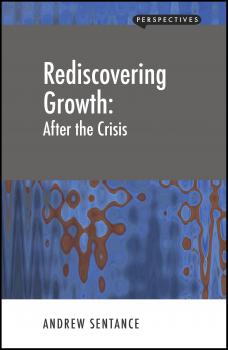ТОП просматриваемых книг сайта:















Perspectives
Скачать книги из серии PerspectivesАннотация
Housing is a fundamental necessity, and yet it is generally acknowledged that we have a ‘housing crisis’ in the UK. The housing market has worked well for many people (who have enjoyed the steeply rising values of their homes), which is why change, especially new building, is resisted. But for increasing numbers it now works less well, as home ownership is out of reach. Government finds it easier to introduce short-term policies that are not really effective, meaning that the long-term issues are never really resolved. Reforms are urgently needed. There are many national policy aims, including decent homes for all, protection of the green belt, better design of buildings and places, avoidance of price volatility, and intergenerational fairness. We also have an existing housing stock that is wrongly located, and some of the housing we do have is of poor quality. With so many conflicting views, strong local feelings and a balance to be struck between growth and conservation, what housing market outcomes might be regarded as a success for policymakers? This book dispels some common myths, and provides answers in the form of policy recommendations.
Аннотация
This book argues that identity and money are both changing profoundly. Because of technological change the two trends are converging so that all that we need for transacting will be our identities captured in the unique record of our online social contacts. Social networks and mobile phones are the key technologies. They will enable the building of an identity infrastructure that can enhance both privacy and security – there is no trade-off. The long-term consequences of these changes are impossible to predict, partly because how they take shape will depend on how companies take advantage of business opportunities to deliver transaction services. But one prediction made here is that cash will soon be redundant – and a good thing too. In its place we will see a proliferation of new digital currencies.
Аннотация
The idea that Brazil, Russia, India and China (the «BRICs») are the rising stars of the world economy is now widely accepted. However, the «old» developed nations have not adjusted to the new world order as they struggle with the legacy of the financial crisis. The BRICs and others (especially Korea) have already ‘emerged’ as economic powers. This requires rapid adjustment in economic policies and especially global economic institutions. This book makes a strong case for a radical overhaul of global economic governance to put these powerful new economies at the heart of decision-making. The author argues that, while the new growth economies still have significant policy adjustments to make, it is also essential for old-world economies to learn from them too and to accept the new order. He looks at the roles of China, Korea and Africa and at the scale of South-South trade. What does all this mean for the EU and for the UK in particular? How should the world engage with the new economic powerhouses?
Аннотация
London has enjoyed an extraordinary period of growth in the past generation, symbolized by the towers of Canary Wharf built on the skeleton of the old docks. Finance was at the heart of this, so how can London’s economy be reinvented after the financial crisis? Success will depend on several factors that must go together: growing service sectors in addition to finance; making it possible for the people who work in London to live there in pleasant and affordable surroundings; and investing in communications and transport links. This must include an early decision on airport investment to improve global links, given that the capital’s main airport is full to capacity – where the extra capacity is located is less important than starting work on expansion as soon as possible.
Аннотация
Poverty, and calls to end it, date back centuries. Even in prosperous modern times, despite the huge transformation of society, poverty has persisted. This book looks back at the struggle to end poverty and asks if it is worth it.
Аннотация
The difficult economic climate in Europe and the United States since the financial crisis is set to continue as the New Normal, despite frantic efforts to stimulate growth. The long phase of expansion that lasted from the 1980s until 2008 was driven by easy money, cheap imports and confidence – all gone. And the shift of geopolitical power to Asia is permanent. This does not mean that Western economies are inevitably condemned to ‘lost decades’ ahead. They can rediscover productivity and growth – but governments face formidable political obstacles to the reforms this would require.







